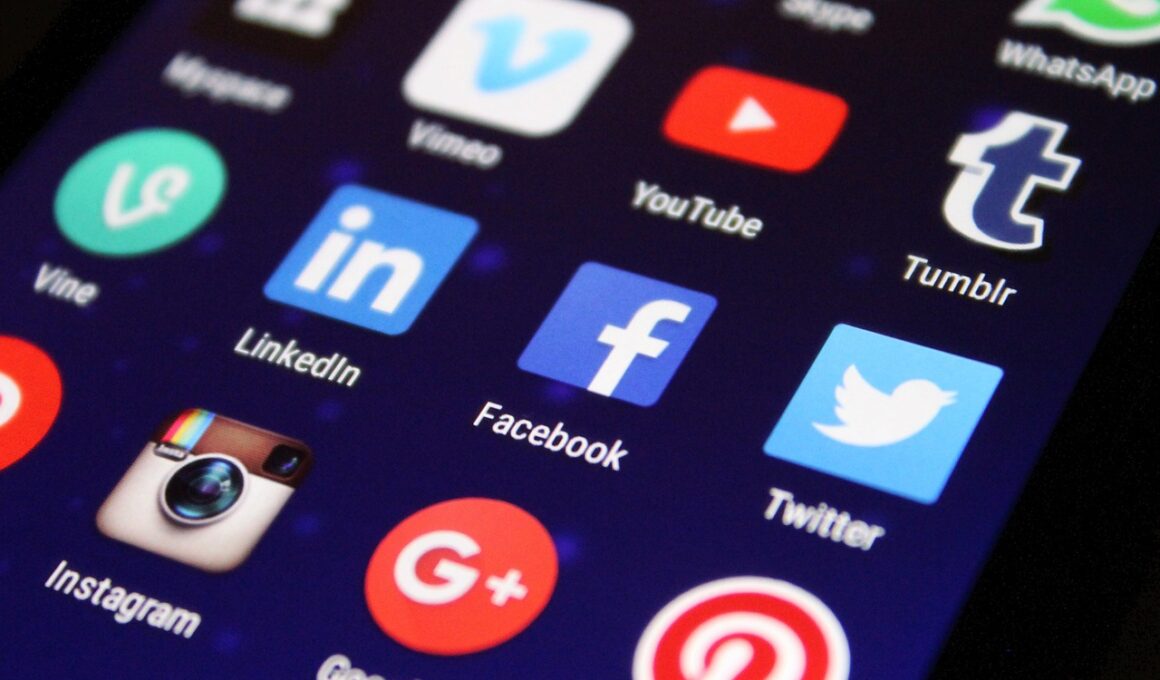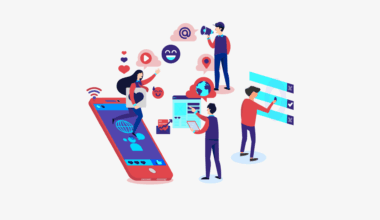Social Listening to Track Event Discussions Across Multiple Platforms
Social listening is an invaluable tool for event managers aiming to enhance engagement and improve the overall experience. By monitoring discussions across platforms like Twitter, Facebook, and Instagram, you can gain insights into participants’ thoughts, preferences, and concerns. This proactive approach allows for immediate feedback to be gathered, enabling quick adjustments to the event planning process. Moreover, reputable social listening tools can analyze sentiment and trending topics related to your event. Implementing this technique ensures that you stay ahead of potential issues, allowing you to address them before they escalate. With the increasing reliance on social media, understanding online sentiments surrounding your event can lead to better decision-making. The goal is to create an experience that resonates with attendees, whether it’s a conference, festival, or workshop. An important aspect to consider is the variety of channels used by potential attendees. Different demographics may prefer specific platforms for discussions, presenting an opportunity to tailor your communication strategies accordingly and maximize audience engagement, making social listening crucial in modern event management. Ultimately, this strategy can contribute to a successful event by aligning it more closely with audience expectations.
Understanding the key benefits of social listening can transform your event management strategy. One primary advantage is the ability to track real-time conversations about your event, which can inform marketing tactics. When you monitor online chatter, you identify which aspects of your event generate excitement and anticipation, compelling you to promote those elements more effectively. Furthermore, social listening helps in gauging competitor events to comprehend their audience reactions and planning strategies. This can prove beneficial when evaluating your event’s position within the market. By analyzing the insights gained, you can refine your programming and enhance the attendee experience, ensuring it addresses their preferences. Not only does social listening capture live discussions, but it also provides historical data, giving context about trends over time. This understanding helps in predicting future attendees’ expectations and planning for upcoming events. Additionally, by leveraging audience-generated content, you can improve your event’s outreach. Creating shareable moments online amplifies engagement, increasing your brand’s visibility. With social listening, you can foster an interactive community that maintains interest long after the event concludes.
Tools for Effective Social Listening
Utilizing the right tools for social listening is crucial in effectively tracking event-related discussions. Platforms like Hootsuite, Brandwatch, and Sprout Social stand out in offering comprehensive social media analytics. These tools not only collect data but also provide actionable insights that can enhance your strategic planning. For example, Hootsuite allows you to monitor multiple social platforms simultaneously, ensuring you never miss a conversation relevant to your event. It allows tracking specific hashtags, keywords, and mentions, enabling focused analysis of public sentiment. Additionally, Brandwatch provides detailed reports and visualizations, making it easy to comprehend complex data trends. Sprout Social enhances your engagement with attendees through scheduled posts, responding to questions, and managing complaints effectively. Integrating these tools into your event management workflow maximizes your potential to address issues swiftly and improve attendee satisfaction. Moreover, they offer competitor analysis features, helping you benchmark against others in your industry. By employing a strategic mix of these platforms, event managers can tailor their approach to suit their specific goals and objectives, ensuring a competitive edge.
Analyzing sentiment is a key aspect of social listening that can reveal how attendees feel about your event. By categorizing feedback as positive, negative, or neutral, event managers can better understand attendee experiences. For instance, a surge in negative sentiment during or after an event could point to potential issues that need immediate attention. This could involve on-site logistics, speaker performance, or even venue accessibility; rectifying these pitfalls can significantly enhance future events. On the other hand, positive feedback can highlight strengths and successful highlights of the occasion. Identifying and promoting these strengths helps in marketing future events more effectively. Moreover, insights gathered from sentiment analysis can inform your post-event wrap-up reports, providing data-driven recommendations for improvement. Exploring thematic analysis may also reveal patterns in discussions, aiding in content development for marketing and promotional strategies. Ultimately, sentiment analysis isn’t just about understanding reactions; it’s a pathway to cultivating lasting relationships with your audience. By demonstrating responsiveness to attendee feedback, you create loyalty, encouraging repeat attendance and referrals.
Engagement Strategies Using Social Listening
Developing effective engagement strategies through social listening can make a significant impact on your event’s success. One essential approach is to engage actively with your audience during the event. Responding to live tweets, shares, or comments enables you to create a sense of community and presence. It shows attendees that their opinions matter and encourages them to participate more actively. Create a dedicated hashtag for your event to streamline discussions. By promoting this hashtag, attendees can connect, share experiences, and amplify your event’s online visibility. In addition, consider running polls or Q&As on social media to solicit instant feedback on the event’s focus areas. This real-time interaction fosters a participative atmosphere and makes attendees feel valued. Social listening allows you to identify key influencers who can help promote your event, driving broader engagement. Engaging with these influencers can create partnerships that enhance your event’s visibility. By monitoring engagement metrics, you can evaluate the effectiveness of your strategies, allowing you to adjust future tactics based on real-time audience preferences and feedback.
Post-event analysis powered by social listening tools offers immense benefits for continuous improvement. After the event concludes, it’s essential to review how attendees perceived their experience. By analyzing social media conversations, event managers can identify recurring issues, compliments, and suggestions for future improvements. This not only aids in learning from the experience but also influences the planning of upcoming events. To facilitate this, create a survey integrating insights gathered from social discussions. This approach encourages attendee participation while demonstrating that their opinions are valued. Additionally, reviewing your social media engagement levels post-event offers an understanding of what resonated with your audience. Did certain speakers or sessions attract higher engagement? Gathering this data will guide better programming decisions in the future. Moreover, developing a post-event report highlighting key achievements, challenges, and next steps can support team collaboration. Such documentation will enhance communication within your planning team and stakeholders. By effectively utilizing insights through continuous social listening efforts, event managers position themselves for sustained success in their future events.
Conclusion: The Future of Events with Social Listening
In conclusion, embracing social listening is essential for event managers seeking to enhance attendee experiences and drive success. The vast amount of data available from social platforms provides invaluable insights into audience expectations and preferences. By utilizing tools that monitor and analyze discussions, you can adapt your strategies in real-time to meet attendee needs effectively. As event landscapes become increasingly competitive, the ability to respond proactively to feedback sets top-tier events apart from the rest. Furthermore, fostering an interactive ecosystem where attendees feel valued and heard enhances loyalty and repeat attendance. Creating a cycle of constant improvement through ongoing analysis allows you to refine future events systematically. As technology continues to evolve, integrating this practice will help navigate ever-changing public sentiments and preferences. Ultimately, social listening empowers event managers to be more agile, informed decision-makers who can elevate the experience they offer. This is not just about managing an event; it’s about creating a community where attendees feel connected, engaged, and excited to participate actively. Thus, the future of event management lies in effectively harnessing the power of social listening to drive meaningful engagement.


